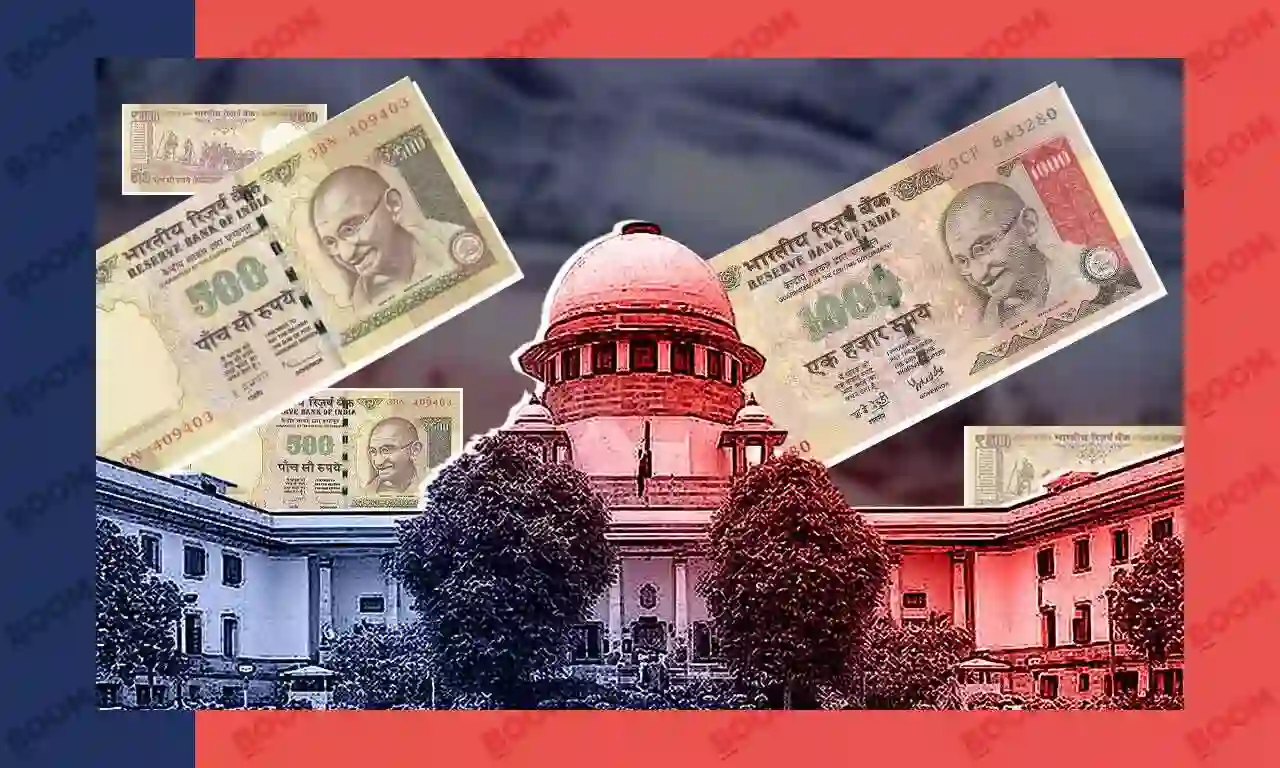In a major victory for the Narendra Modi Government, the Supreme Court on Monday upheld the Centre’s decision in November 2016 to demonetise Rs 500 and Rs 1,000 currency notes.
Announcing the Supreme Court verdict, Justice Gavai said the power available to the Centre under 2(26) of RBI Act can be exercised on all series of bank notes.
He further said, it appears from the records that there was a consultation between the Central Government and the RBI. The decision-making process cannot be faulted because the proposal emanated from the Central Government. The notification does not suffer from any flaws, the notification is not unreasonable, he added.
#Demonetisation Judgment | Justice Gavai says power available to #Centre can be exercised for all series of bank notes. There are no flaws in the decision-making process, satisfies test of proportionality pic.twitter.com/ImgC1etP5o
— CNBC-TV18 (@CNBCTV18Live) January 2, 2023
The Centre is required to take action after consultation with the Central Board of RBI and there was a consultation between the two for six months, the judges said.
The Supreme Court judgment went in favour of the government 4:1 with four judges of the bench upholding the government’s decision to demonetise the notes of higher denomination and Justice Nagarathna giving a dissenting judgement.
Justice Nagarathna said only the RBI’s Board can recommend demonetisation and the powers of the central government to demonetise have to be exercised through a legislative process.
As many as 58 petitions were filed challenging the Centre’s decision of November 2016 to ban Rs 1,000 and Rs 500 currency notes. As much as Rs 10 lakh crore was wiped out of circulation overnight because of the decision aimed to root out black money from the economy. The petitioners wanted the decision to be struck down as unconstitutional.
The government also argued that the court cannot decide a matter when no tangible relief can be granted. It would be like “putting the clock back” or “unscrambling a scrambled egg.”




















